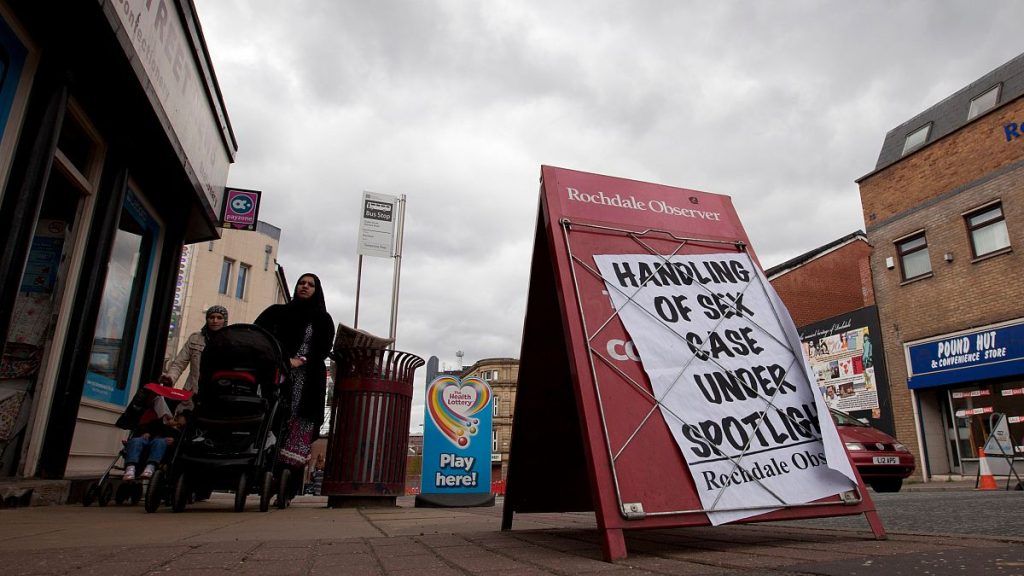The UK’s Labour government, barely a year into its term, finds itself embroiled in a resurgent scandal concerning historical child sexual exploitation by organized gangs, often referred to as “grooming gangs.” This complex issue, involving the abuse of vulnerable young women and girls, predominantly by men of Pakistani heritage, has simmered for over a decade, periodically erupting into national outrage. The recent refusal by Safeguarding Minister Jess Phillips to launch a national inquiry, opting instead for local investigations, reignited the controversy, drawing international attention, notably from Elon Musk. Under mounting pressure, the government has now conceded to establish a national panel to hear victim testimonies, with the possibility of a full statutory inquiry if demanded.
The scale and horror of these crimes, particularly in Rotherham and Rochdale, are deeply etched in the public consciousness. The 2014 Jay Report exposed the systematic abuse of girls as young as 11, often trafficked and exploited while under the care of local authorities. Thousands of children are estimated to have been victims over several decades, with a recurring pattern of authorities ignoring or dismissing warnings from those working directly with the children. The failure to protect these vulnerable individuals constitutes a significant element of the ongoing scandal and fuels public anger.
The ethnic dimension of the perpetrators has become a central and contentious aspect of the debate. While a 2020 Home Office report highlighted the diverse backgrounds of perpetrators involved in group-based child sexual exploitation, with the majority being white, the overrepresentation of men of Pakistani descent in some of the most notorious cases has fueled racially charged narratives. Conservative leader Kemi Badenoch has controversially emphasized the “particular background” of perpetrators, suggesting a cultural link and a sense of impunity stemming from their origins. Her comments, though acknowledging the state’s failure to protect victims, have drawn criticism for potentially stoking racial tensions.
This complex issue has historically created a difficult discourse, with some, including Labour MP Sarah Champion, arguing that fears of being labeled racist have hindered open discussion of the specific problem of Pakistani men involved in sexual exploitation. Champion’s own experience of being ostracized for raising the issue highlights the fraught nature of the conversation. The current resurgence of the scandal, with renewed calls for a national inquiry, underscores the urgent need for a comprehensive and nuanced examination of the issue, addressing both the crimes themselves and the systemic failures that allowed them to occur.
Elon Musk’s intervention adds a further layer of complexity. His recent focus on UK politics, particularly concerning racial integration and the presence of Muslims in the country, aligns with rhetoric from the far-right in both the US and the UK. Musk, along with figures like Donald Trump and JD Vance, has expressed concerns about London’s Muslim mayor, Sadiq Khan, contributing to a narrative of “Islamist infiltration” that resonates with certain segments of the British right. This rhetoric, amplified by Musk’s platform, provides further fuel for those seeking to exploit the grooming gangs scandal for political gain.
The Conservative Party, having lost power after 14 years, faces a rising threat from Nigel Farage’s far-right Reform UK. This has created a strong incentive for Conservatives to capitalize on the grooming gangs scandal, focusing on the ethnic dimension to appeal to right-wing voters. Figures like Shadow Justice Secretary Robert Jenrick have linked the scandal to “mass migration” and “alien cultures,” further inflaming the debate and drawing internal criticism within the party. While not all Conservatives share these views, the temptation to exploit the issue for political advantage remains strong. Farage himself has seized upon the scandal, accusing the government of a cover-up and demanding an inquiry specifically focused on the ethnicity of the perpetrators, pushing a narrative of racialized victimhood. This highly charged atmosphere, exacerbated by Musk’s intervention, further complicates the search for justice and accountability, raising concerns about the potential for misinformation and the exploitation of vulnerable communities.














